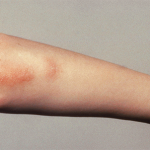 ACR CONVERGENCE 2021—The ACR Convergence 2021 Late-Breaking Abstracts session highlighted recently published data from abstracts of interest to the general ACR audience. This year, six of our colleagues were selected to share their research.
ACR CONVERGENCE 2021—The ACR Convergence 2021 Late-Breaking Abstracts session highlighted recently published data from abstracts of interest to the general ACR audience. This year, six of our colleagues were selected to share their research.
Breakthrough COVID-19 Infections Post-Vaccination
Jasvinder A. Singh, MD, MPH, professor of medicine and epidemiology, director of rheumatology research, Birmingham Veteran’s Affairs Medical Center, Alabama, shared data on breakthrough COVID-19 infections post-vaccination among immunocompromised patients with autoimmune or inflammatory rheumatic diseases (AIIRDs).1 COVID-19 vaccines are highly effective in the general population, but we know they may be less effective in elderly or immunocompromised patients, especially those taking glucocorticoids or B cell-depleting therapies.2 The risk with other medications and rheumatic diseases is not yet known.
Singh et al. completed a retrospective cohort analysis from the National COVID Cohort Collaborative (N3C), a high-granularity electronic medical record data repository of COVID-19 cases and controls from largely academic U.S. medical centers. Breakthrough COVID-19 infection was defined by incident diagnosis 14 or more days after vaccination. Kaplan-Meier cumulative incidence curves were used to demonstrate the time to breakthrough infection.
Results showed a higher cumulative incidence of breakthrough infection in patients with AIIRD. In particular, the risk for breakthrough infection was higher for patients with inflammatory myositis, rheumatoid arthritis, gout, vasculitis and patients with multiple rheumatic diseases. Risk was also increased for patients taking biologics and more than one AIIRD medication. Timing of medication exposure was also important, with medication use within the past 30 days resulting in a higher risk of breakthrough infection.
Although the study had limitations, Dr. Singh concluded, “Our data indirectly support the use of the third dose of the COVID-19 vaccine for immunocompromised patients with AIIRDs.”
Heterologous vs. Homologous Boosters
Michael Bonelli, MD, associate professor, Division of Rheumatology, Medical University of Vienna, Austria, shared data on homologous vs. heterologous booster vaccination in patients treated with rituximab. Homologous vaccination describes the use of the same vaccine type as a booster (e.g., mRNA vaccine followed by an mRNA booster – either Pfizer-BioNTech or Moderna), whereas heterologous vaccination refers to using a different type of vaccine (e.g., mRNA vaccine followed by AstraZeneca’s vector vaccine) as a booster.
Recent data have shown that patients treated with rituximab have worse COVID-19 clinical outcomes, such as higher rates of hospitalization and mortality.3 Further studies have confirmed a reduced humoral and cellular immune response after COVID-19 vaccination in patients treated with rituximab, with 29% developing neither response.4

